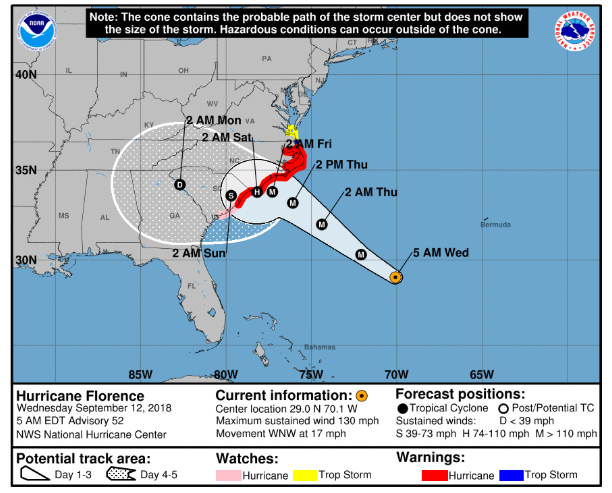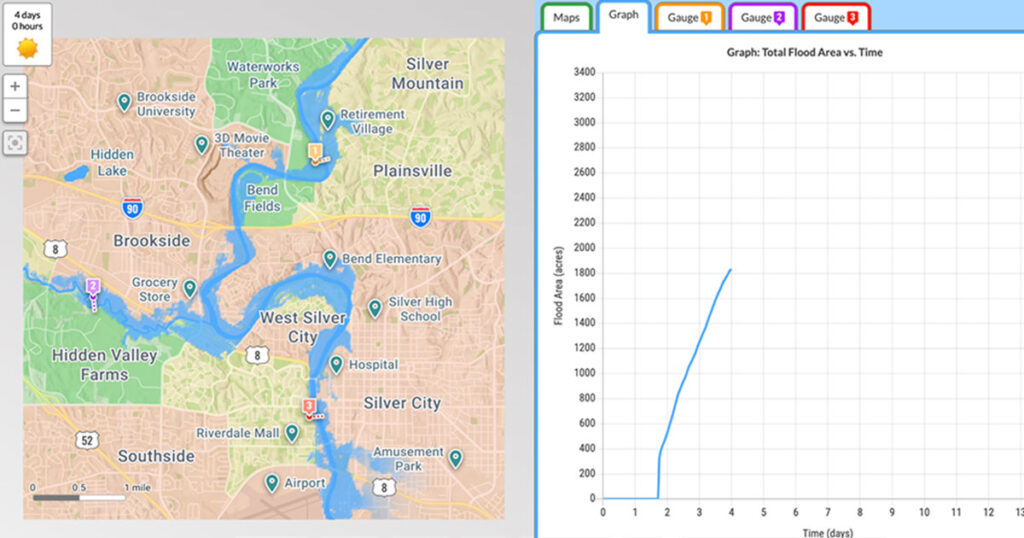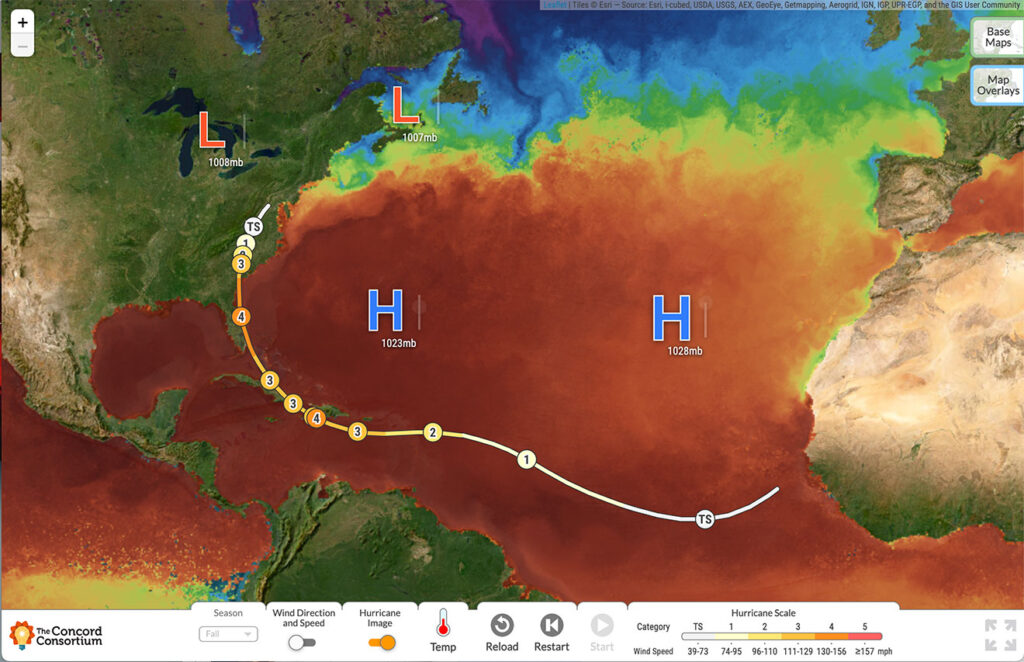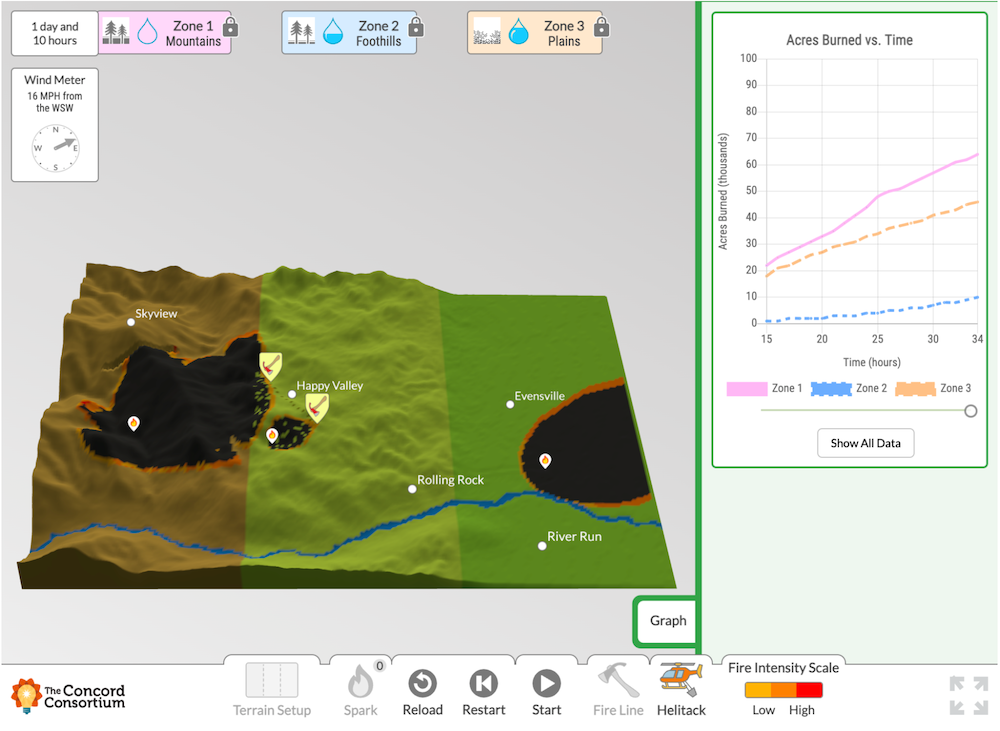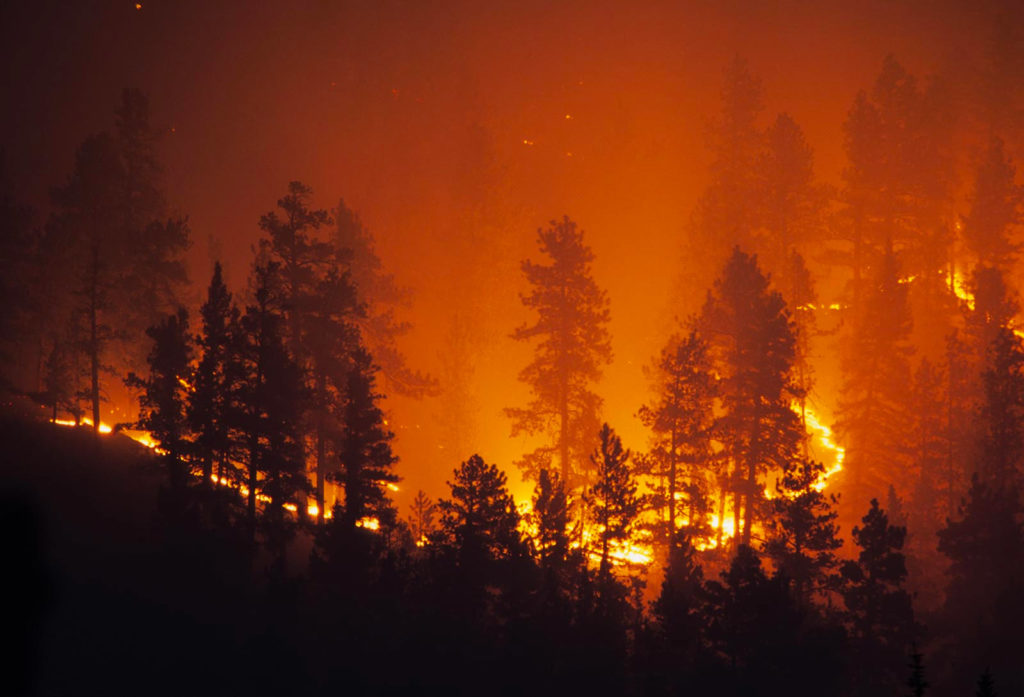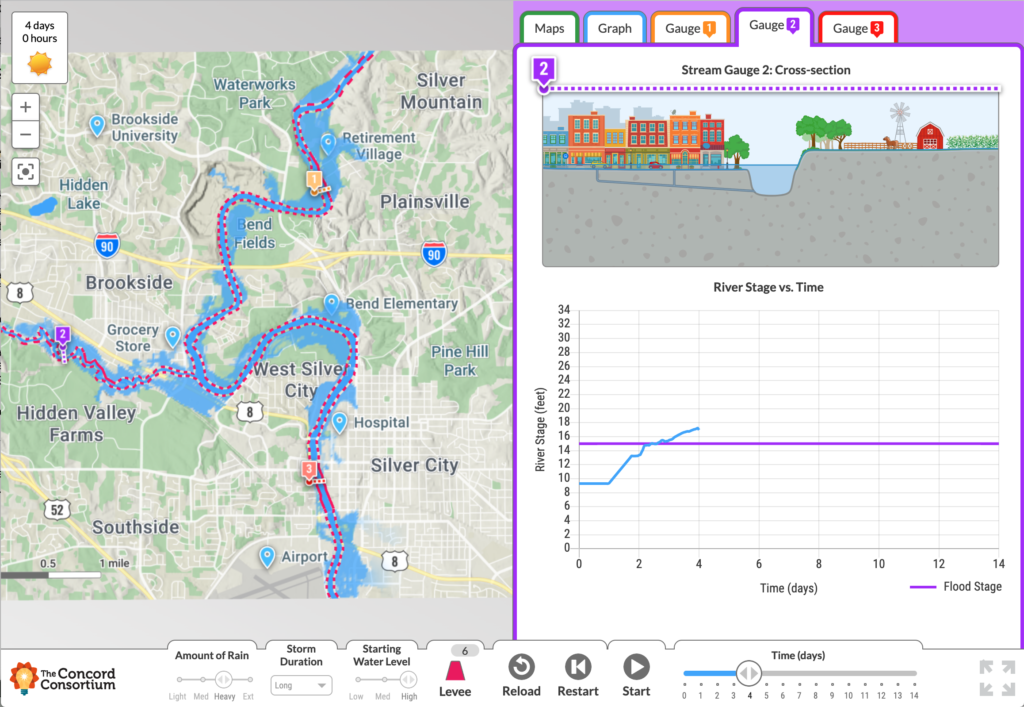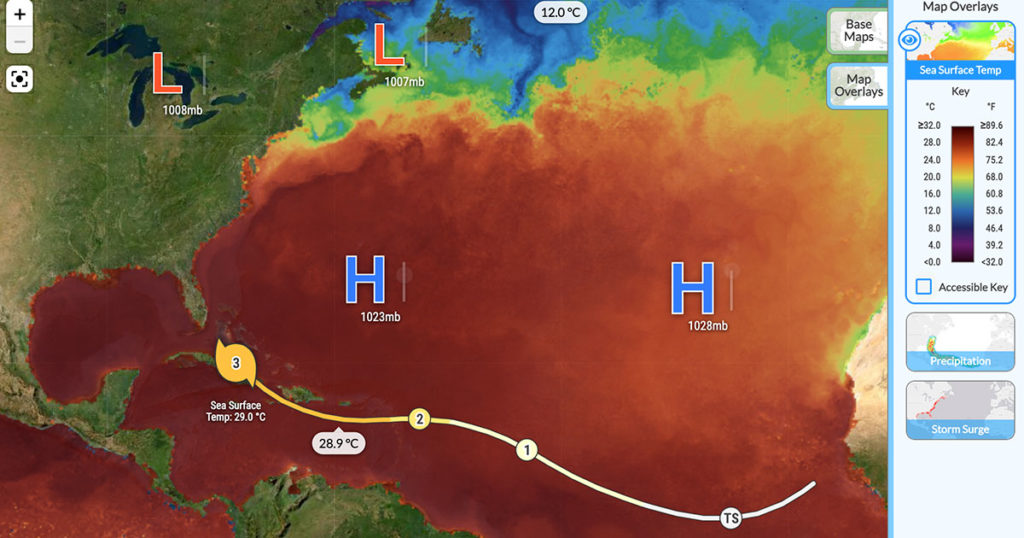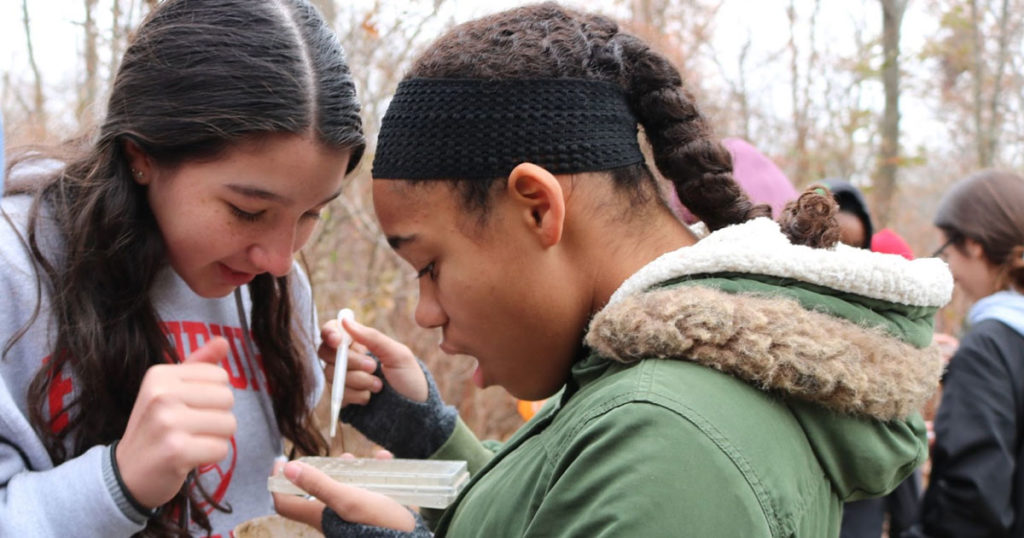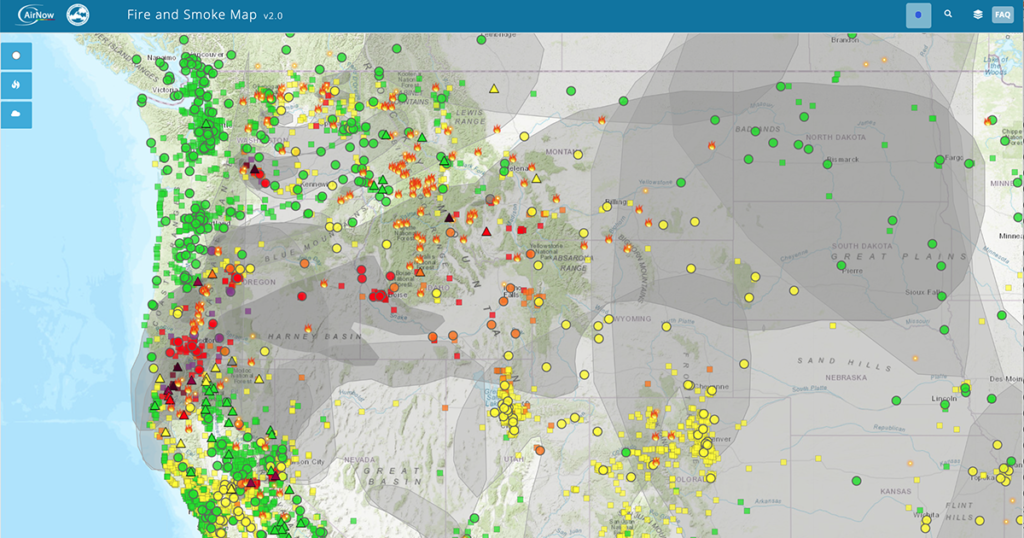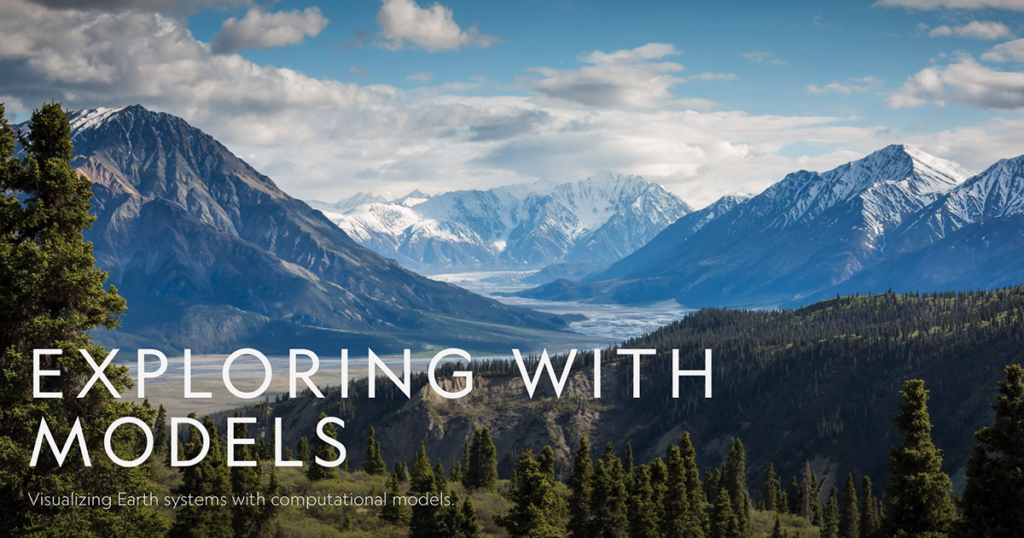Category: GeoHazard
At the Concord Consortium, we believe that science education should reflect the dynamic, uncertain, and inquiry-driven nature of science itself. In our recently published study in the International Journal of Science Education, we explore how middle and high school students engage in hurricane science by interacting with the very tools scientists use to reason about […]
Stephanie Harmon is a Science Consultant with the Partnership Institute for Math and Science Education Reform (PIMSER) in Kentucky. Previously, she taught Earth science and physics at Rockcastle County High School in Mount Vernon, Kentucky, and has consulted on several Concord Consortium projects. For my students in rural Kentucky, floods are personal. In July 2022, […]
Michael Focht is a middle school teacher in Titusville, Florida, and field tested our GeoHazard modules. Do the names Matthew, Nicole, Ian, or Irma give you pause? Are they long-lost cousins? Friends from high school? For the students in my middle school science classes, these are the names of hurricanes that have impacted them over […]
Turn on the news and you’ll see horrific images of flames enveloping hillsides, engulfing homes, and destroying entire communities. This year’s wildfire season is on track, once again, to be one of the worst in history. The number of acres burned in California in August 2024 is already more than double the number of acres […]
It used to be that natural disasters like wildfires, floods, and hurricanes each had their own season, likely to occur in predictable locations and at certain times of the year. Changes in the climate have expanded and shifted both the map of where people may be at risk and the months when these hazards most […]
In the last 30 years, the risk of inland flooding in the United States has increased dramatically. Extreme rainfall events have become more frequent, causing widespread flooding and water damage. The costs to repair, rebuild, and remediate flooding have grown each year. Flooding in the Midwest in 2019 alone affected 14 million people and came […]
Climate change, and the rise of the natural hazards that climate change brings, has been at the top of news feeds every week over the past year. Extreme events such as floods, droughts, and wildfires are expected to increase in the future. What does that mean for those of us living in the path of […]
We recently revised our mission and vision statements, and described our efforts to address issues of diversity, equity, inclusion, and justice in several of our research projects. We know that this was only a beginning. As we said, “We are still learning how to design science, technology, engineering, and mathematics resources that are more socially […]
The American West is burning. Wildfires rage, firefighters battle to contain fires, families are forced to evacuate their homes, and smoke chokes neighborhoods hundreds of miles away. Multiple years of drought have desiccated trees, shrubs, and grasses and transformed the western United States into a tinderbox. Air Quality Index and active fires in the western […]
We are delighted to celebrate five years of partnering with the world-renowned National Geographic Society. The National Geographic Society uses the power of science, exploration, education, and storytelling to illuminate and protect the wonder of our world. At the Concord Consortium we envision a world where teaching and learning seamlessly incorporate the best features of […]
